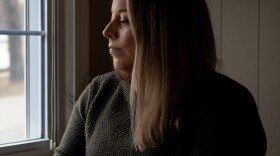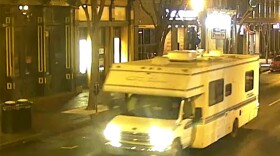Emily Siner
Emily Siner is an enterprise reporter at WPLN. She has worked at the Los Angeles Times and NPR headquarters in Washington, D.C., and her written work was recently published in Slices Of Life, an anthology of literary feature writing. Born and raised in the Chicago area, she is a graduate from the University of Illinois at Urbana-Champaign.
-
A surgeon quickly addressed a secondary problem he noticed during a routine operation. The surgery center billed the patient for two separate operations.
-
We often hear that air travel is worse than it's ever been. Gone are the days when airplanes touted piano bars and meat carving stations — or even free meals. Instead we're crammed into tiny seats and fighting for overhead space. How did we get here? Most of the inconveniences we think about when we fly can be traced back to the period of time just after the federal government deregulated the airlines. When commercial air travel took off in the 1940s, the government regulated how many national airlines were allowed to exist, where they were allowed to fly, and how much they could charge for tickets. But the Airline Deregulation Act of 1978 swept all these restrictions aside – and stopped providing subsidies for the air carriers. Airlines had to compete on ticket prices. That competition led to a more bare-bones flying experience, but it also made air travel a lot more affordable. In this episode, we trace the evolution of air travel over the past century to discover whether flying really is worse today — or if it's actually better than ever. We'll board a plane from the "golden age" of air travel, hear the history of one of the original budget airlines and meet feuding airline CEOs. Along the way, we'll see how economic forces have shaped the airline industry into what it is today, and what role we, as consumers, have played. Help support Planet Money and hear our bonus episodes by subscribing to Planet Money+ in Apple Podcasts or at plus.npr.org/planetmoney.
-
Suffering stomach pain, a Dallas man visited his local urgent care clinic — or so he thought, until he got a bill 10 times what he’d expected.
-
Agreeing to an out-of-network doctor's financial policy, which protects their ability to get paid and may be littered with confusing jargon, can create a binding contract that leaves a patient owing.
-
A frugal Tennessee resident opted out of Medicare Part B, which carries $175 monthly premiums. Now her heirs face a huge bill for an air-ambulance ride.
-
For the patient, it was a quick and inexpensive virtual appointment. Why it cost 10 times more than she expected became a mystery.
-
Convenient as it may be, beware of getting your blood drawn at a hospital. The cost could be much higher than at an independent lab, and your insurance might not cover it all.
-
Convenient as it may be, beware of getting your blood drawn at a hospital. As one Texas woman discovered, the cost could be higher than at an independent lab, and your insurance might not cover it.
-
More than a year before the explosion that rocked Nashville last week, the woman told police that he "was building bombs in the RV trailer at his residence."
-
Hunting is on the decline in some parts of the country. At this week's National Wild Turkey Federation convention, officials want to recruit new hunters, especially women.









